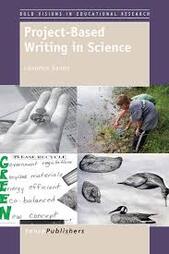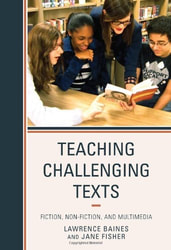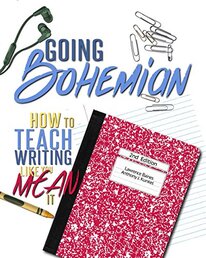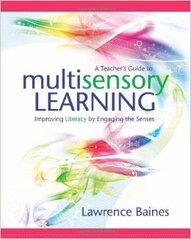What's a parent to do?
"What’s a parent to do?: How to give your child the best education, by Lawrence Baines, gives clear and excellent advice to parents about navigating complex issues for both early education and public schools. Baines can be blunt about warning families about dilemmas created by the test-driven, competition-driven, top-down reform of the last few decades. Whether or not it was his explicit goal when explaining these issues and research to families, his letter to parents approach also allows for bridging differences while being candid about the edu-political battles that were made so much worse by corporate school reform." From the review from Dr. John Thompson on the website of the Network for Public Education. See: https://networkforpubliceducation.org/blog-content/john-thompson-how-to-make-education-better-really/
Amazon link: https://www.amazon.com/Whats-Parent-Do-Child-Education/dp/1475866798
Rowman link: https://rowman.com/ISBN/9781475866780/What%E2%80%99s-a-Parent-to-Do-How-to-Give-Your-Child-the-Best-Education
Rowman link: https://rowman.com/ISBN/9781475866780/What%E2%80%99s-a-Parent-to-Do-How-to-Give-Your-Child-the-Best-Education
Project-based writing in science

Each lesson features a step-by-step guide; a summary of recent research; and a bunch of classroom-ready lessons. No BS, no fluff, only the good stuff. Writing assignments are central--narrative, persuasive, and informative--and include detailed rubrics that make grading straightforward and easy. Lessons involve responding to an outbreak of a novel virus (hmm...seems timely), surviving in the wild with no tech, dealing with drought in a densely-populated city, researching the behavior of animals, and calculating one's own physical prowess. Engaging and demanding, PROJECT-BASED WRITING IN SCIENCE was written to help students understand the world as it is and perhaps consider ways the world could be improved. Or, at least, that was the idea behind the book. Read an excerpt here.
Teaching challenging texts

The brutal truth is that many students today not only do not want to read, they don't like to read. Many have poor comprehension and do not understand what they read. There's no getting around it.
TEACHING CHALLENGING TEXTS features ready-to-use, classroom-proven lessons, replete with handouts and assessments. TEACHING CHALLENGING TEXTS suggests extensive use of images, films, commercials, websites, and all kinds of music. "Teaching Difficult Texts is a must-read for all of us to become better teachers of this new generation." Philip Zimbardo, former president of APA, author of The Time Paradox & The Lucifer Effect. If Philip Zimbardo thinks the book is worthwhile, then it's worth getting.
Read an excerpt here.
TEACHING CHALLENGING TEXTS features ready-to-use, classroom-proven lessons, replete with handouts and assessments. TEACHING CHALLENGING TEXTS suggests extensive use of images, films, commercials, websites, and all kinds of music. "Teaching Difficult Texts is a must-read for all of us to become better teachers of this new generation." Philip Zimbardo, former president of APA, author of The Time Paradox & The Lucifer Effect. If Philip Zimbardo thinks the book is worthwhile, then it's worth getting.
Read an excerpt here.
Going Bohemian: How to teach writing like you mean it

Gobo is a compendium of writing strategies that Anthony Kunkel and I created over 20 years of teaching in some of the toughest schools in America. Bohemian writing lessons rely on unconventional strategies, art and multimedia, competitive games, and indirect approaches to teach some of the vexing challenges of writing. When kids are rioting and nothing seems to be working, it's time to pull out GOBO so you can salvage what's left of the day.
Read an excerpt here.
A teacher's guide to multisensory learning

A TEACHER'S GUIDE discusses how to use multisensory techniques to help students interact with material more intensely and retain what they learn for longer periods of time. Here's a review from a person I've never met: "A great teacher resource! The author provides the reasons for using multisensory authentic instruction to teach our students in the best way so they retain learning. It begins with a look at students today, and points out the need to engage them in the central skill of literacy. There is a discussion of the history and research on the use of multi sensory learning and a separate chapter for each of the senses. There are lesson plans that can be adapted for all the senses. This resource needs to be in every school to encourage more teachers to adopt this rich, authentic, fun approach. It is unique in providing ideas for all grade levels through high school." (Review on Amazon). Read an excerpt here.
Other books on teaching writing and reading
Baines, L. A., & Kunkel, A. (2003). Teaching adolescents to write: The unsubtle art of naked teaching. New York, NY: Pearson.
Baines, L. A., & Kunkel, A. (2000). Engaging adolescents in the art of writing well. Newark: DE: International Reading Association. Awarded “best book in education” by Independent Publisher.
Simmons, J., & Baines, L. A. (Eds.) (1998). Language study in middle school, high school, and beyond. Newark, DE: International Reading Association.
Baines, L. A., & Kunkel, A. (2000). Engaging adolescents in the art of writing well. Newark: DE: International Reading Association. Awarded “best book in education” by Independent Publisher.
Simmons, J., & Baines, L. A. (Eds.) (1998). Language study in middle school, high school, and beyond. Newark, DE: International Reading Association.
Articles
Baines L., & Nahar G. (2020) Loosening the linkages between language and the land. In: S. Brunn, & R. Kehrein (Eds.) Handbook of the changing world language map. London: Springer Nature. https://doi.org/10.1007/978-3-030-02438-3_5
Afrin S., & Baines L. (2018) Trajectories of language, culture, and geography in postcolonial Bangladesh. In: S. Brunn, & R. Kehrein (Eds.) Handbook of the changing world language map. London: Springer Nature. https://doi.org/10.1007/978-3-319-73400-2_2-1
Baines, L. A. & Wickham, A. (2018). The new multilingual reality. English Journal 107(6), 14-21.
Baines, L. A. (2015). The language arts as foundational for science, technology, engineering, art, and mathematics. In X. Ge, D. Ifenthaler, & J. Spector (Eds.), Full STEAM ahead: Emerging technologies for STEAM, (pp. 247-258). Cham, Switzerland: Springer International.
Baines, L. A. (2016). Living the Orwellian dream. Oklahoma English Journal 29(2), 10-11.
Harrison, J., & Baines, L. A. (2016). Teaching Shakespeare. Ohio Journal of English Language Arts 56(1), 45-48.
Ellis, M., & Baines, L. A. (2016). Levels of consciousness in The Drowned Cities. Oklahoma English Journal 28(2), 74-86.
Baines, L. A. & Romano, R. (2015, July 31). Student engagement and achievement in language arts. International Society for Technology in Education website, https://www.iste.org/explore/articleDetail?articleid=505&category=Innovator-solutions&article.
Baines, L. A. (2015). A technical guide to narrative inquiry. Linguistics and Education 29, 83-84.
Baines, L. A. & Rundquist, C. (2014). Multisensory learning for a multisensory age. National Association of Gifted Children Conceptual Foundations, 13-14.
Baines, L. A. (2013). Learning by ear. International Reading Association. www.readingonline.org.
Baines, L. A. (2013). Call to creativity (book review). Teachers College Record. http://www.tcrecord.org.
Baines, L. A., & Fisher, J. (2013). From cave art to cryonics. ALAN Review 41(1), 46-52.
Baines, L. A. (2013). Then, let them eat screens. Teachers College Record. http://www.tcrecord.org ID NUMBER: 17112.
Baines, L. A. (2012). Sensations, not words. Journal of the Washington Academy of the Sciences 98(3), 1-18.
Baines, L. A. (2012). A future of fewer words? The Futurist 46(2), 42-47.
Baines, L.A. (2011). Teaching literature. In E. Farrell, Living the English profession, (pp. 103-157). Spring, TX: Absey.
Baines, L.A. (2011). New rules for a new game (white paper on literacy and technology). Studysync website. http://www.studysync.com/resources.cfm.
Baines, L.A. (2011). Romancing the topic. International Reading Association website. www.reading.org.
Baines, L. A. (2009). Reading and happiness. Phi Delta Kappan, 90(9), 686-688.
Baines, L. A., & Slutsky, R. (2009, Winter). Developing the sixth sense: Play. Educational Horizons, 97-101.
Baines, L.A. (2009). Movement as an instructional strategy. Virginia Journal of Education 103(2), 11-14.
Baines, L. A. (2008). Film, literature, and language. In J. Flood, S. Heath, & D. Lapp (Eds.), Handbook of research on teaching literacy through the communicative and visual arts, (pp. 503-512). New York: Taylor & Francis.
Baines, L. A. (2008). An irrecusable offer: Film in the k-12 classroom. In N. Frey & D. Fisher (Eds.), Teaching visual literacy: Using comic books, graphic novels, anime, cartoons, and more to develop comprehension and thinking skills (pp. 149-168). Thousand Oaks, CA: Corwin.
Baines, L. A. (2007). Eight minutes and falling: The fate of reading in a digital age. Society for Information Technology in Teacher Education Yearbook 2007. Charlottesville, VA: Association for the Advancement of Computing in Education.
Baines, L. A. (2005, December). Chicken bone epiphanies. Voices from the Middle, 35-40.
Baines, L. A. (2004, Spring). Supercharging the classroom for reading and writing, Virginia English Bulletin, 47-53.
Baines, L. A. (2004, Fall). Teaching like you mean it. Pedagogy, 461-468.
Baines, L. A., & Farrell, E. (2002). The tao of instructional models. In J. Flood, D. Lapp, J. Jensen, & J. Squire (Eds.), Handbook of research on teaching the English language arts, (pp. 74-86). Mahwah, NJ: Lawrence Erlbaum.
Baines, L. A., & Price, P. (2002). Teaching teachers how to reach the reluctant reader through multimedia. In D. Willis, J. Price, & J. Willis (Eds.), Society for Information Technology in Teacher Education Yearbook 2002, (pp. 1872-1876). Charlottesville, VA: Association for the Advancement of Computing in Education.
Baines, L. A., & Belvin, L. (2001). Rage towards the machine. In D. Willis, J. Price, & J. Willis (Eds.), Society for Information Technology in Teacher Education Yearbook 2001, (pp. 2660—2665). Charlottesville, VA: Association for the Advancement of Computing in Education. Awarded “best policy paper” from the Association for the Advancement of Computing in Education.
Baines, L. A., & Stanley, G. (2001). No more shopping for grades at B-mart. In D. Evans (Ed.), Takings sides: Controversial issues in education, (pp. 230-236). Dubuque, Iowa: Dushkin/McGraw-Hill (reprinted from a previously published article from The Clearing House).
Baines, L. A. (2001, September). Out of the box. Voices from the Middle, 12-20.
Baines, L. A. (2000). Writing in 3-D. In D. Willis, J. Price, & J. Willis (Eds.), Society for Information Technology in Teacher Education Yearbook 2000, (pp. 1770-1775). Charlottesville, VA: Association for the Advancement of Computing in Education.
Baines, L. A. (2000). The mysterious Mr. Pike. In T. Hipple (Ed.), Writers for young adults, (pp. 237-248). New York: Charles Scribners Sons.
Baines, L. A., Strehle, L., Bell, S., & Murphree, J. (1999). Music and musicians' effects on adolescents. In P. Carroll (Ed.), Using literature to help troubled teenagers cope with societal issues, (pp. 163-180). Westport, CT: Greenwood Publishers.
Deluzain, E., & Baines, L. A. (1999). Coming online. In J. Hirschbuhl (Ed.), Computer studies: computers in education, (pp. 182-185). Dubuque, Iowa: Dushkin McGraw-Hill.
Baines, L., A., & Fishel, F. (1999, Fall). Writing in 3-D. Virginia English Bulletin, 61-69.
Baines, L. A., Deluzain, E., & Stanley, G. K. (1999, Summer). Computer technology in Florida and Georgia secondary schools: Propaganda and progress. American Secondary Education, 33-38.
Baines, L. A., Baines, C., Stanley, G., & Kunkel, A. (1999, May). Losing the product in the process. English Journal, 67-72.
Baines, L. A., Deluzain, E., & Hengi, Y. (1999, January/February). The state of the net: Rhetoric and reality in public schools. Journal of Computers in Social Science, 11-17.
Baines, L. A., & Stanley, G. K. (1999, August/September). Constructive advice, Teacher Magazine, 12-13.
Baines, L. A., Deluzain, E., & Hegngi, Y. (1998). The state of the net. In H. Maurer & R. Olson (Eds.), The WEBNET ‘98 International Conference Proceedings, (pp. 750-758). Charlottesville, VA: Association for the Advancement of Computing in Education.
Baines, L. A. (1998, September). Freedom, smut surfing, and the Internet. English Journal, 15-16.
Deluzain, E., & Baines, L. A. (1998, July/August). Coming online. The Clearing House, 342-344.
Baines, L. A. (1998, April). English for whose tomorrow? Journal of Adolescent and Adult Literacy, 594-596.
Baines, L. A. (1998, February). From tripod to cosmos: A new metaphor for the language arts. English Journal, 24-35.
Baines, L. A. (1997). Film, video, and books: Some considerations for learning and teaching. In J. Flood, S. Heath, & D. Lapp (Eds.), Handbook of research on teaching literacy through the communicative and visual arts, (pp. 545-557). New York: MacMillan.
Baines, L. A. (1997). Plainspeak or technomorph? The language of an interactive message board on the web. In J. Price, K. Rosa, S. McNeil, & J. Willis (Eds.), Teacher education and technology, (pp. 788-793). New York: Allyn & Bacon.
Baines, L. A. (1997, Winter). In praise of red ink: Bringing back the evaluative response to the composition classroom. Virginia English Bulletin, 3-8.
Baines, L. A. (1997, March/April). Massaging Shakespeare across the media. The Clearing House, 194-198.
Baines, L. A. (1997, February). Dispensing with intellect, Journal of Adolescent and Adult Literacy, 385-386.
Baines, L. A. (1996, May). From page to screen. Journal of Adolescent and Adult Literacy, 612-622.
Baines, L. A. (1995, September). Fist fights, guns, and the art of teaching English. English Journal, 59-64.
Baines, L. A. (1995, Spring). Using video to assess student progress in English. Arizona English Bulletin, 14-18.
Baines, L. A., & Dial, M. (1995, February). Scripting screenplays. English Journal, 86-91.
Baines, L. A. (1994, Fall). Cool books for tough guys. Alan Review, 43-46.
Sweeney, J., & Baines, L. A. (1993, Spring). The effect of a video-based economics unit on the learning outcomes of third-graders. Social Science Record, 43-56.
Baines, L. A., & Grady-Cook, L. (1992, Spring). A conversation with Edmund J. Farrell. English in Texas, 3-6.
Baines, L. A. (1991, Spring). Writing across the media. Virginia English Bulletin, 54-56.
Afrin S., & Baines L. (2018) Trajectories of language, culture, and geography in postcolonial Bangladesh. In: S. Brunn, & R. Kehrein (Eds.) Handbook of the changing world language map. London: Springer Nature. https://doi.org/10.1007/978-3-319-73400-2_2-1
Baines, L. A. & Wickham, A. (2018). The new multilingual reality. English Journal 107(6), 14-21.
Baines, L. A. (2015). The language arts as foundational for science, technology, engineering, art, and mathematics. In X. Ge, D. Ifenthaler, & J. Spector (Eds.), Full STEAM ahead: Emerging technologies for STEAM, (pp. 247-258). Cham, Switzerland: Springer International.
Baines, L. A. (2016). Living the Orwellian dream. Oklahoma English Journal 29(2), 10-11.
Harrison, J., & Baines, L. A. (2016). Teaching Shakespeare. Ohio Journal of English Language Arts 56(1), 45-48.
Ellis, M., & Baines, L. A. (2016). Levels of consciousness in The Drowned Cities. Oklahoma English Journal 28(2), 74-86.
Baines, L. A. & Romano, R. (2015, July 31). Student engagement and achievement in language arts. International Society for Technology in Education website, https://www.iste.org/explore/articleDetail?articleid=505&category=Innovator-solutions&article.
Baines, L. A. (2015). A technical guide to narrative inquiry. Linguistics and Education 29, 83-84.
Baines, L. A. & Rundquist, C. (2014). Multisensory learning for a multisensory age. National Association of Gifted Children Conceptual Foundations, 13-14.
Baines, L. A. (2013). Learning by ear. International Reading Association. www.readingonline.org.
Baines, L. A. (2013). Call to creativity (book review). Teachers College Record. http://www.tcrecord.org.
Baines, L. A., & Fisher, J. (2013). From cave art to cryonics. ALAN Review 41(1), 46-52.
Baines, L. A. (2013). Then, let them eat screens. Teachers College Record. http://www.tcrecord.org ID NUMBER: 17112.
Baines, L. A. (2012). Sensations, not words. Journal of the Washington Academy of the Sciences 98(3), 1-18.
Baines, L. A. (2012). A future of fewer words? The Futurist 46(2), 42-47.
Baines, L.A. (2011). Teaching literature. In E. Farrell, Living the English profession, (pp. 103-157). Spring, TX: Absey.
Baines, L.A. (2011). New rules for a new game (white paper on literacy and technology). Studysync website. http://www.studysync.com/resources.cfm.
Baines, L.A. (2011). Romancing the topic. International Reading Association website. www.reading.org.
Baines, L. A. (2009). Reading and happiness. Phi Delta Kappan, 90(9), 686-688.
Baines, L. A., & Slutsky, R. (2009, Winter). Developing the sixth sense: Play. Educational Horizons, 97-101.
Baines, L.A. (2009). Movement as an instructional strategy. Virginia Journal of Education 103(2), 11-14.
Baines, L. A. (2008). Film, literature, and language. In J. Flood, S. Heath, & D. Lapp (Eds.), Handbook of research on teaching literacy through the communicative and visual arts, (pp. 503-512). New York: Taylor & Francis.
Baines, L. A. (2008). An irrecusable offer: Film in the k-12 classroom. In N. Frey & D. Fisher (Eds.), Teaching visual literacy: Using comic books, graphic novels, anime, cartoons, and more to develop comprehension and thinking skills (pp. 149-168). Thousand Oaks, CA: Corwin.
Baines, L. A. (2007). Eight minutes and falling: The fate of reading in a digital age. Society for Information Technology in Teacher Education Yearbook 2007. Charlottesville, VA: Association for the Advancement of Computing in Education.
Baines, L. A. (2005, December). Chicken bone epiphanies. Voices from the Middle, 35-40.
Baines, L. A. (2004, Spring). Supercharging the classroom for reading and writing, Virginia English Bulletin, 47-53.
Baines, L. A. (2004, Fall). Teaching like you mean it. Pedagogy, 461-468.
Baines, L. A., & Farrell, E. (2002). The tao of instructional models. In J. Flood, D. Lapp, J. Jensen, & J. Squire (Eds.), Handbook of research on teaching the English language arts, (pp. 74-86). Mahwah, NJ: Lawrence Erlbaum.
Baines, L. A., & Price, P. (2002). Teaching teachers how to reach the reluctant reader through multimedia. In D. Willis, J. Price, & J. Willis (Eds.), Society for Information Technology in Teacher Education Yearbook 2002, (pp. 1872-1876). Charlottesville, VA: Association for the Advancement of Computing in Education.
Baines, L. A., & Belvin, L. (2001). Rage towards the machine. In D. Willis, J. Price, & J. Willis (Eds.), Society for Information Technology in Teacher Education Yearbook 2001, (pp. 2660—2665). Charlottesville, VA: Association for the Advancement of Computing in Education. Awarded “best policy paper” from the Association for the Advancement of Computing in Education.
Baines, L. A., & Stanley, G. (2001). No more shopping for grades at B-mart. In D. Evans (Ed.), Takings sides: Controversial issues in education, (pp. 230-236). Dubuque, Iowa: Dushkin/McGraw-Hill (reprinted from a previously published article from The Clearing House).
Baines, L. A. (2001, September). Out of the box. Voices from the Middle, 12-20.
Baines, L. A. (2000). Writing in 3-D. In D. Willis, J. Price, & J. Willis (Eds.), Society for Information Technology in Teacher Education Yearbook 2000, (pp. 1770-1775). Charlottesville, VA: Association for the Advancement of Computing in Education.
Baines, L. A. (2000). The mysterious Mr. Pike. In T. Hipple (Ed.), Writers for young adults, (pp. 237-248). New York: Charles Scribners Sons.
Baines, L. A., Strehle, L., Bell, S., & Murphree, J. (1999). Music and musicians' effects on adolescents. In P. Carroll (Ed.), Using literature to help troubled teenagers cope with societal issues, (pp. 163-180). Westport, CT: Greenwood Publishers.
Deluzain, E., & Baines, L. A. (1999). Coming online. In J. Hirschbuhl (Ed.), Computer studies: computers in education, (pp. 182-185). Dubuque, Iowa: Dushkin McGraw-Hill.
Baines, L., A., & Fishel, F. (1999, Fall). Writing in 3-D. Virginia English Bulletin, 61-69.
Baines, L. A., Deluzain, E., & Stanley, G. K. (1999, Summer). Computer technology in Florida and Georgia secondary schools: Propaganda and progress. American Secondary Education, 33-38.
Baines, L. A., Baines, C., Stanley, G., & Kunkel, A. (1999, May). Losing the product in the process. English Journal, 67-72.
Baines, L. A., Deluzain, E., & Hengi, Y. (1999, January/February). The state of the net: Rhetoric and reality in public schools. Journal of Computers in Social Science, 11-17.
Baines, L. A., & Stanley, G. K. (1999, August/September). Constructive advice, Teacher Magazine, 12-13.
Baines, L. A., Deluzain, E., & Hegngi, Y. (1998). The state of the net. In H. Maurer & R. Olson (Eds.), The WEBNET ‘98 International Conference Proceedings, (pp. 750-758). Charlottesville, VA: Association for the Advancement of Computing in Education.
Baines, L. A. (1998, September). Freedom, smut surfing, and the Internet. English Journal, 15-16.
Deluzain, E., & Baines, L. A. (1998, July/August). Coming online. The Clearing House, 342-344.
Baines, L. A. (1998, April). English for whose tomorrow? Journal of Adolescent and Adult Literacy, 594-596.
Baines, L. A. (1998, February). From tripod to cosmos: A new metaphor for the language arts. English Journal, 24-35.
Baines, L. A. (1997). Film, video, and books: Some considerations for learning and teaching. In J. Flood, S. Heath, & D. Lapp (Eds.), Handbook of research on teaching literacy through the communicative and visual arts, (pp. 545-557). New York: MacMillan.
Baines, L. A. (1997). Plainspeak or technomorph? The language of an interactive message board on the web. In J. Price, K. Rosa, S. McNeil, & J. Willis (Eds.), Teacher education and technology, (pp. 788-793). New York: Allyn & Bacon.
Baines, L. A. (1997, Winter). In praise of red ink: Bringing back the evaluative response to the composition classroom. Virginia English Bulletin, 3-8.
Baines, L. A. (1997, March/April). Massaging Shakespeare across the media. The Clearing House, 194-198.
Baines, L. A. (1997, February). Dispensing with intellect, Journal of Adolescent and Adult Literacy, 385-386.
Baines, L. A. (1996, May). From page to screen. Journal of Adolescent and Adult Literacy, 612-622.
Baines, L. A. (1995, September). Fist fights, guns, and the art of teaching English. English Journal, 59-64.
Baines, L. A. (1995, Spring). Using video to assess student progress in English. Arizona English Bulletin, 14-18.
Baines, L. A., & Dial, M. (1995, February). Scripting screenplays. English Journal, 86-91.
Baines, L. A. (1994, Fall). Cool books for tough guys. Alan Review, 43-46.
Sweeney, J., & Baines, L. A. (1993, Spring). The effect of a video-based economics unit on the learning outcomes of third-graders. Social Science Record, 43-56.
Baines, L. A., & Grady-Cook, L. (1992, Spring). A conversation with Edmund J. Farrell. English in Texas, 3-6.
Baines, L. A. (1991, Spring). Writing across the media. Virginia English Bulletin, 54-56.